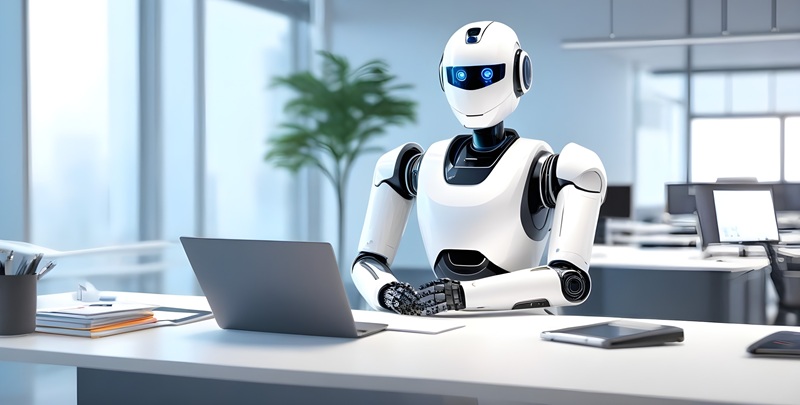LinkedIn’s recent research reveals that one in every ten new hires in 2024 will hold job titles that were nonexistent in 2000, such as AI engineer and sustainability manager. This shift highlights the swift evolution in the workplace, driven by technological advancements and the emergence of new roles and skills. The LinkedIn Work Change Snapshot emphasizes that three-quarters of UK business leaders believe workplace changes are accelerating due to heightened demands for novel roles, skills, and technologies. Moreover, over half of HR professionals feel these developments have led to unprecedented expectations from employers.
The Transformative Potential of AI
Accelerating Workplace Change
The LinkedIn report underlines the transformative potential of artificial intelligence, with 80% of UK business leaders acknowledging AI’s ability to enhance team performance. However, the reality is that only 8% of these leaders believe their companies are at the forefront of AI adoption. This gap between the recognition of AI’s benefits and its implementation highlights a critical area for future growth and development. Business leaders must strategize effectively to incorporate AI into their operations. The data underscores that by 2030, the required skill sets for UK jobs will have changed by 65% from those needed in 2016. This statistic underscores the pressing need for businesses to adapt to technological advancements if they are to stay competitive.
HR Professionals Under Pressure
HR professionals are also navigating through significant transformations. More than a third of HR professionals feel overwhelmed by the number of decisions they need to make daily, with 15% reporting that they spend up to a quarter of their week seeking necessary insights. This increasing pressure points to the need for more efficient tools and processes. Janine Chamberlin, LinkedIn’s UK country manager, emphasizes the importance of equipping HR teams with the right tools and training to navigate these shifts effectively. The efficient handling of HR tasks and decisions can lead to better outcomes in talent management and overall team performance. LinkedIn’s efforts to support HR professionals underscore the vital role that updated technology and continuous training play in managing the ever-evolving workplace.
LinkedIn’s AI-Centered Solutions
Automating Recruiter Tasks
In response to these challenges, LinkedIn is harnessing the power of technology to aid HR professionals in navigating workplace changes. One significant innovation is the AI agent named Hiring Assistant. This AI-driven solution is designed to automate repetitive recruiter tasks, such as sorting resumes and scheduling interviews, which can free up HR professionals to focus on more strategic initiatives. Automating these routine tasks helps reduce the time and effort required from HR teams, allowing them to invest more in activities that require a human touch, such as relationship-building and strategic planning. By automating administrative tasks, Hiring Assistant not only increases efficiency but also enhances the overall recruiting experience for both recruiters and candidates.
Enhancing Interpersonal Skills through AI-Powered Coaching
As part of its effort to support workplace change, LinkedIn is also expanding an AI-powered coaching feature within LinkedIn Learning. This innovative feature is aimed at helping users improve their interpersonal skills through interactive scenarios. The AI-powered coaching system provides personalized feedback, real-time practice sessions, and tailored learning paths, thereby enabling users to hone their soft skills effectively. This tool is particularly valuable given the rising importance of emotional intelligence and interpersonal skills in today’s collaborative work environment. By investing in AI-powered coaching, LinkedIn is not only addressing current skill gaps but also preparing professionals for future challenges.
Conclusion
LinkedIn’s recent research underscores a compelling trend: one in every ten new hires in 2024 will have job titles that didn’t exist in 2000, such as AI engineer and sustainability manager. This phenomenon illustrates the rapid transformation within the workplace, propelled by technological advances and the creation of new roles and skill sets. The LinkedIn Work Change Snapshot reveals that three-quarters of business leaders in the UK perceive an acceleration in workplace changes, driven by growing demands for innovative roles, skills, and technologies. This rapid evolution underscores how businesses are reshaping their strategies to adapt. Furthermore, more than half of HR professionals report that these shifts have created unprecedented expectations from employers, pushing them to reassess recruitment tactics and workforce planning. The future workplace is evolving faster than ever, necessitating a strategic approach to stay competitive in an era of constant change. This dynamic environment calls for businesses to be more agile and forward-thinking to meet the ongoing demands of the modern job market.

